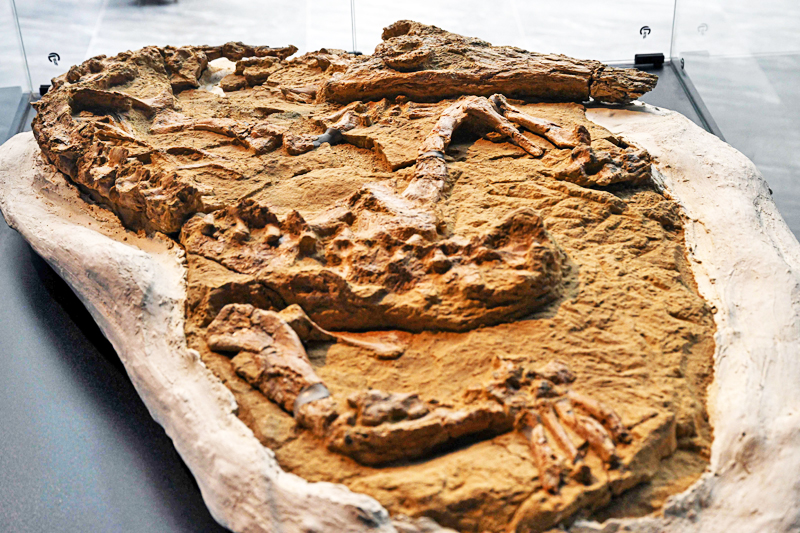LIMA, NOV 28 – Paleontologists yesterday revealed the fossil discovery of a young marine crocodile aged around 10 to 12 million years old found in the Peruvian desert.
The fossil of a gharial species crocodile, also known as a fish-eating crocodile, about three meters long was found in perfect condition at the end of 2023, in the Ocucaje desert of Peru, about 350 kilometers south of the capital city of Lima.
“We found fossils of the offspring of this species for the first time. This means that it did not reach its maximum size before it died,” said vertebrate paleontologist, Mario Gamarra, in a press conference.
According to Gamarra, who led the reconstruction of the fossil, the skull and jaws of the crocodile species differed from modern crocodiles and alligators.
“This crocodile has a long snout and its diet is entirely piscivorous consisting of fish,” he explained, adding that the closest relative of this species today is the Indian gharial.

The discovery is the result of a joint effort between the Institute of Geology, Mining and Metallurgy of Peru and the La Union school.
The Ocucaje desert in Peru is an area rich in fossils, including four-legged pygmy whales, dolphins, sharks and other species from the Miocene period, which is about 5 to 23 million years ago, which have also been found in the area before. – AFP

